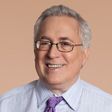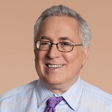Andrew Feinberg's 5 Dirt-Cheap Stock Picks for 2011
To reduce risk, all of my 2011 stock choices trade at low prices in relation to key financial measures and have scant risk of implosion.

Profit and prosper with the best of Kiplinger's advice on investing, taxes, retirement, personal finance and much more. Delivered daily. Enter your email in the box and click Sign Me Up.
You are now subscribed
Your newsletter sign-up was successful
Want to add more newsletters?

Delivered daily
Kiplinger Today
Profit and prosper with the best of Kiplinger's advice on investing, taxes, retirement, personal finance and much more delivered daily. Smart money moves start here.

Sent five days a week
Kiplinger A Step Ahead
Get practical help to make better financial decisions in your everyday life, from spending to savings on top deals.

Delivered daily
Kiplinger Closing Bell
Get today's biggest financial and investing headlines delivered to your inbox every day the U.S. stock market is open.

Sent twice a week
Kiplinger Adviser Intel
Financial pros across the country share best practices and fresh tactics to preserve and grow your wealth.

Delivered weekly
Kiplinger Tax Tips
Trim your federal and state tax bills with practical tax-planning and tax-cutting strategies.

Sent twice a week
Kiplinger Retirement Tips
Your twice-a-week guide to planning and enjoying a financially secure and richly rewarding retirement

Sent bimonthly.
Kiplinger Adviser Angle
Insights for advisers, wealth managers and other financial professionals.

Sent twice a week
Kiplinger Investing Weekly
Your twice-a-week roundup of promising stocks, funds, companies and industries you should consider, ones you should avoid, and why.

Sent weekly for six weeks
Kiplinger Invest for Retirement
Your step-by-step six-part series on how to invest for retirement, from devising a successful strategy to exactly which investments to choose.
My top three stocks for 2010 returned an average of 99% -- but I am not happy. Without General Growth Properties (symbol GGP), which soared 344%, my picks were punk. KVH Industries (KVHI) rose 9% before I told you to sell it -- prematurely, as it turned out. And Medivation (MDVN) plunged 57% after its Alzheimer's drug failed a clinical trial.
The Medivation debacle has scarred me. I will no longer buy stocks that I know could tumble 57% given a foreseeable adverse development. So the coming year's picks all trade at low prices relative to basic measures of value and have scant risk of implosion.
Want to buy a debt-laden Spanish infrastructure company? Probably not. But your aversion explains why Ferrovial SA (which trades actively on the Madrid stock exchange under the symbol FER.MC for about 8 euros and by appointment in the U.S. under the symbol FRRVY.PK for about $11) sells at perhaps a 50% discount to the value of its assets.
From just $107.88 $24.99 for Kiplinger Personal Finance
Become a smarter, better informed investor. Subscribe from just $107.88 $24.99, plus get up to 4 Special Issues

Sign up for Kiplinger’s Free Newsletters
Profit and prosper with the best of expert advice on investing, taxes, retirement, personal finance and more - straight to your e-mail.
Profit and prosper with the best of expert advice - straight to your e-mail.
Ferrovial overexpanded and nearly collapsed during the financial crisis. But the company was smart enough to sell its Spanish real estate division before the bubble burst, is paring debt and has some outstanding assets -- most of them located outside of Spain. A play on global growth, Ferrovial owns airports around the world, including London's Heathrow, the world's second busiest. It also owns most of the 407 ETR highway in greater Toronto, a godsend for commuters that allows them to cut an hourlong trip in half. Based on another firm's recent purchase of a company that owns 30% of the toll road, Ferrovial's stake in the 407 alone equals 66% of its stock price.
Next on my list is Richardson Electronics (RELL), which recently sold most of itself to Arrow Electronics (ARW). When the deal closes in January, Richardson will have at least $11 per share in net cash on its books -- equal to the current stock price. And it will still have two businesses that will earn about $7 million a year, or 40 cents per share. Figure they'll be worth ten times earnings (or $4), add that to the cash, and you could argue that Richardson is worth $15 per share.
Why is the stock so cheap? Some investors worry that the company may not use the cash wisely or may not downsize fast enough after the sale to remain profitable. Plus, Richardson's biggest product is vacuum tubes, which conjures up an image of ancient Philco TVs. "We will look closely at repurchasing lots of stock," says chief financial officer Kathleen Dvorak, "but we also intend to grow the company."
American Capital (ACAS) is a business-development company that, at about $8, trades at a 25% discount to its net asset value (NAV) of $9.59 per share. If it traded at 1.1 times NAV, as most of its peers do, the stock would be 38% higher. American Capital, which invests in midsize firms, sells at a discount because it had a near-death experience during the credit crisis and it doesn't pay a dividend. Yet the company is performing well,as hedge-fund mogul John Paulson, its largest shareholder, has noticed.
JMP Securities analyst John Hecht says that American Capital could eventually pay a dividend of 85 cents per share, which at the current share price would equate to a yield of 11%. Sounds mighty compelling to me.
My final pick is a twofer: General Growth Properties and Howard Hughes Corp. (HHC, $37). General Growth emerged from bankruptcy and split into two companies in early November. General Growth ($14 after the reorganization) will run highly profitable malls, and Howard Hughes (the only firm I know that is intentionally named for an apparent lunatic) will hold unprofitable or undeveloped assets, including prime real estate from Waikiki to Manhattan. Together, the two stocks should deliver double-digit returns over time. Bruce Flatt, CEO of Brookfield Asset Management, will chair General Properties; another investment genius, hedge-fund billionaire Bill Ackman, will chair Hughes.
Profit and prosper with the best of Kiplinger's advice on investing, taxes, retirement, personal finance and much more. Delivered daily. Enter your email in the box and click Sign Me Up.

-
 Over 65? Here's What the New $6K Senior Bonus Deduction Means for Medicare IRMAA
Over 65? Here's What the New $6K Senior Bonus Deduction Means for Medicare IRMAATax Breaks A new deduction for people over age 65 has some thinking about Medicare premiums and MAGI strategy.
-
 U.S. Congress to End Emergency Tax Bill Over $6,000 Senior Deduction and Tip, Overtime Tax Breaks in D.C.
U.S. Congress to End Emergency Tax Bill Over $6,000 Senior Deduction and Tip, Overtime Tax Breaks in D.C.Tax Law Here's how taxpayers can amend their already-filed income tax returns amid a potentially looming legal battle on Capitol Hill.
-
 5 Investing Rules You Can Steal From Millennials
5 Investing Rules You Can Steal From MillennialsMillennials are reshaping the investing landscape. See how the tech-savvy generation is approaching capital markets – and the strategies you can take from them.
-
 Why This Hedge-Fund Manager Is Shutting Down
Why This Hedge-Fund Manager Is Shutting Downinvesting Now I plan to invest a chunk of the family portfolio in index funds—oh, the horror!
-
 Know When to Sell a Stock
Know When to Sell a Stockinvesting Don't let a stock's stumbles blind you to its long-term potential.
-
 The Secret to Safely Investing in Biotech
The Secret to Safely Investing in Biotechinvesting Seth Klarman was prescient in recognizing that the genomics revolution would supercharge the biotech industry.
-
 Profit from Following Activist Investors
Profit from Following Activist Investorsinvesting When investors like Carl Icahn and Bill Ackman turn the heat on management, shareholders stand to benefit.
-
 Doubling Down on a Falling Stock
Doubling Down on a Falling Stockstocks Buying more shares makes sense when nothing about a company has changed except the price of its stock.
-
 Andrew Feinberg's 6 Stock Picks for 2015
Andrew Feinberg's 6 Stock Picks for 2015investing Bank of America has made great progress in cutting costs and settling legal claims for shoddy mortgage securities.
-
 Promising Bargains in Biotech Stocks
Promising Bargains in Biotech Stocksinvesting What I like about BioDelivery Sciences is not so much that there are many ways to win as that there are almost no ways to lose.
-
Time-Tested Advice for Long-Term Investors
investing Learn from the Kahns, ultra-patient (and successful) value investors who often hold stocks for 20 years.